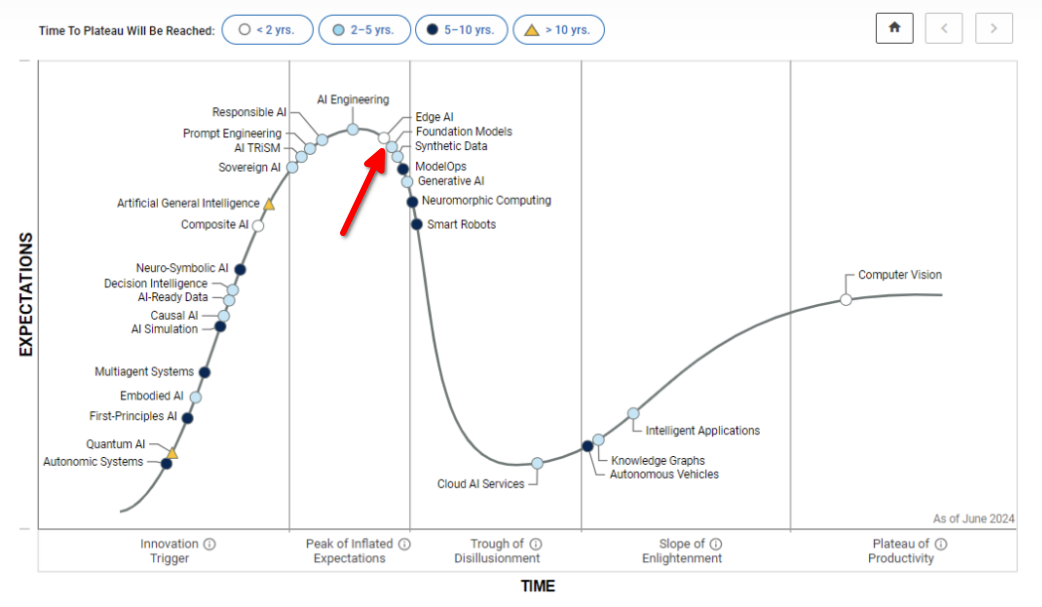TL;DR: To my fellow system builders, don’t dismiss it but understand how it works. As the saying goes, “a tool is only as good as the hands that wield it”. As a software craftsman, your tools are important. And equally so, are your skills in using them effectively.
~~
There’s no escaping GenAI nowadays, is there? I’m sure you’ve seen the full spectrum of its effects by now; from total naysayers to skeptics, to cautious optimists, to proponents and fanatics, to full-blown doom-bringers. In the cloud space, the big three cloud providers are “all in” on AI, as you can see in their headlines. Furthermore, there are thousands of AI-powered startups cropping up left, right, and center, with massive venture capital and valuations. If you’re not in the thick of these things, it gives the feeling that if you don’t invest, or apply AI in your business, or products, it’s just a matter of time when you’ll be left behind and eventually relegated into the pages of failures in history. It’s a scary thought. The FUD is real.
According to Gartner’s Hype Cycle for Artificial Intelligence, 2024, AI is now past the “Peak of Inflated Expectations”, although the hype about it still continues. So somewhere around here:
That means the “Trough of Disillusionment”, or in other words, the time of it not being “cool” anymore, is just around the corner (could still be years though, who knows). That’s the phase where you’re going to get the “You’re still doing AI? The world has moved on to Quantum Computing now! Catch up, or you’re gonna be left behind!” sort of feedback.
Remember Web3? According to Crunchbase, the uncontrolled hype of 2021 petered out dramatically around last year, with funding declining from $28 billion to $7.6 billion (73% decline) in 2023. $7.6 billion is not a slouch by any means, but you’d better have a credible business model to be able to survive that. With AI, you can kind of see signs of brakes being applied already with reports saying it might not perform well enough to justify the cost.
So what does that mean to us, system builders? I’m not an economist, nor can I predict the future, but I can form my opinion around what’s going on. Mind you, this is just my opinion; I’m not even representing the opinion of my employer, Alphaus. With that disclaimer out of the way, I think I’m somewhere in the middle; cautiously optimistic about AI and its uses. AI has been compared to the internet revolution in the 90’s, and rightly so, as a lot of the intricacies of AI still feels like “magic” to most people. And I think I can understand this sentiment as I’m in the generation that saw the rise of the internet and social media during their prime years and a lot of it felt like magic as well. Regardless of the dot-com crash in the 2000’s, now, the internet, just like the smartphone, is here to stay. We don’t really think about them that much anymore; they’re just, you know, part of our daily lives. And I think AI will be the same. It will find its place, whether niche or mainstream, in our daily lives in some form or another. Whether that’s in my lifetime, I don’t know.
We use AI at Alphaus. We use forecasting models to help our customers forecast budgets and their future cloud spendings based on their historical data. We use LLMs as part of our customer support. Our engineers use Copilot to aid them in their day-to-day coding tasks. I use both ChatGPT and Gemini in notetaking, summarization, and translation. And I know our CEO, Hajime Hirose, uses a lot of LLMs as well. On top of that, I read a lot of papers behind AI. It’s something I enjoy doing. As a CTO of a startup, it is part of my job to assess technology and leverage it to further our business. And that includes AI, among other things.
If you’re a software engineer who is currently employed, or looking for a job, or looking for something interesting to learn/build, or a technologist who is thinking of starting a company, I think it’s wise to consider AI. Whether we like it or not, we are part of this corporate, capitalistic world, and AI is the current game. And we have to play the game to survive.
Do I think AI will replace developers? To some extent, yes. And not just developers, but other professions as well. But I think it will also create new jobs and positions at the same time. Just like the internet and other transformative tech revolutions before that. I would imagine the industrial revolution has replaced a lot of professions but also created completely new ones. Think assembly lines, steel-making, steam-power-based automation and mass production, etc., which I think didn’t really exist before. Anyway, think of it this way: software engineering is about solving problems, not just coding. Coding is probably the easiest part of our job. LLMs might be able to replace that bit but, without sentience or consciousness, the social/human part of our job is still on us.
Do I think GenAI will cause human extinction? Or replace us humans? Well, it’s like asking a hunter-gatherer during the Stone Age if he thinks a jet engine would render his bow and arrow useless. He’ll probably just reply, “You mad? What are you on about?”.
